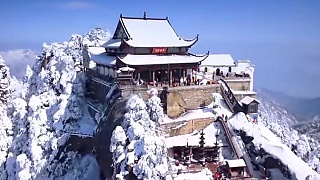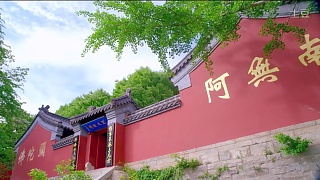 ShaoXing 绍兴, ZheJiang province
ShaoXing 绍兴, ZheJiang province
Related Videos
Featured Videos

|
An 11 day trip through YunNan province in the snow ...
Plus, 'Never regret a trip to LiJiang' ...
Includes the nearby Jade Dragon Snow Mountain.
|

|
How to be free.
Warning : lots of f-bombs in the video; but it is full of wisdom.
|

|
An awesome film - don't miss it ...
September trip, in 2017; charming couple.
XinJiang, north west China, includes the Tien Shan and Kunlun Shan mountains, the Taklimakan Desert, and the Tarim Basin.
|

|
JǐuHuá Shān, 'Nine Glorious Mountains', is one of the four sacred mountains of Chinese Buddhism. Located in AnHui province, it is famous for its rich landscape and ancient temples.
A beautiful film ...
|

|
A wide variety of beautiful music from many locations plus informational films on the Chinese New Year.
Don't miss it ...
|

|
Sung by Alu Azhou and the Mountain Wind Group 阿鲁阿卓, 山风组合 生如夏花.
Inspired by Stray Birds by famous Indian poet Rabindranath Tagore, 1916 (生如夏花之绚烂,死如秋叶之静美 --飞鸟集, 泰戈尔, 1916). Lyrics and Music by PU Shu (朴树).
"In this life, we can not stay so long ..."
Plus Song of the Surging Water - title song of the 2015 movie Wolf Totem 汪峰 沧浪之歌(《狼图腾》主题曲). Sung by Wang Feng.
Lyrics by WANG Feng (汪峰); music by Adam HUANG (HUANG Yong, 黄勇); with Alianuul (Morin Khuur solo) and NING FangLiang (violin solo).
"I am broken, but I love flying ..."
鄧紫棋 G.E.M. - 存在_我是歌手第二季 (2014年1月10日)
‘Your Collar’, a haunting, romantic song from the imperial music of the Han Dynasty ...
(Life is like a) Warm Spring with Blooming Flowers 春暖花开 (when I am with you) ...
If you can, please support this site with a donation; it really does help us keep going ... Thank you from the BeijingBuzzz team !
|

|
|

|
LiánYúnGǎng's tourist attractions include :
Lian Island Resort, 连岛
A beautiful island connected to LianYun district by a 7 kilometer (4 miles) sea dyke, the longest in China. There are two main beach and swimming areas. Lian Island is also home to an annual music extravaganza that features some of China's most famous pop stars.
Huaguo Mountain, 花果山
|
Tag search ?

 ShaoXing 绍兴, ZheJiang province
ShaoXing 绍兴, ZheJiang province
 ShaoXing 绍兴, ZheJiang province
ShaoXing 绍兴, ZheJiang province





